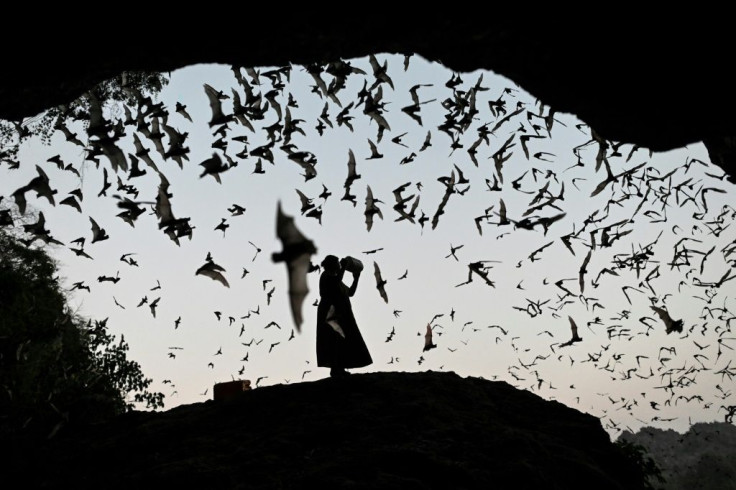SARS-CoV-2 Jumped From Bats To Humans Without Much Genetic Change: Research
KEY POINTS
- A new study suggested SARS-CoV-2 was able to jump from bats to humans without much genetic change
- "Neutral" evolutionary processes have dominated in the virus despite some changes having an effect
- Researchers said it was "surprising" to see how "transmissible SARS-CoV-2 has been from the outset"
A new study has found that SARS-CoV-2, the virus which causes COVID-19, jumped from bats to humans without much genetic change.
A collaboration between researchers in the U.K., U.S. and Belgium, the study said that there was very little "important" genetic change observed in the sequenced virus genomes since December 2019 and for the first 11 months of the coronavirus pandemic. The findings of the research have been published in the open-access journal PLOS Biology.
"This does not mean no changes have occurred, mutations of no evolutionary significance accumulate and 'surf' along the millions of transmission events, like they do in all viruses," said researcher Oscar MacLean from the University of Glasgow.
Certain changes have an effect on SARS-CoV-2, such as the Spike replacement D614G that has been found to enhance transmissibility, Eurekalert noted. However, the scientists noted that "neutral" evolutionary processes have dominated.
"This stasis can be attributed to the highly susceptible nature of the human population to this new pathogen, with limited pressure from population immunity, and lack of containment, leading to exponential growth making almost every virus a winner," MacLean explained.
The study's lead authors David L Robertson (at the MRC-University of Glasgow Centre for Virus Research, Scotland) and Sergei Pond (at the Institute for Genomics and Evolutionary Medicine, Temple University, Philadelphia) have been able to use their expertise in analyzing data from HIV and other viruses for the study of SARS-CoV-2.
Pond said the virus' rate of transmissibility has been "surprising," noting that viruses that jump from one host to another usually take some time to adapt.
"What's been so surprising is just how transmissible SARS-CoV-2 has been from the outset. Usually, viruses that jump to a new host species take some time to acquire adaptations to be as capable as SARS-CoV-2 at spreading, and most never make it past that stage, resulting in dead-end spillovers or localized outbreaks," Pond commented.
The scientists found "evidence of fairly significant change" when they looked at the mutational processes of SARS-CoV-2 and related sarbecoviruses — or the group of viruses SARS-CoV-2 belongs to from bats and pangolins. However, they noted that all these happened before the virus reached a human host.
Due to this, the study suggested that coronaviruses' "generalist" nature and their tendency to jump from host to host have given SARS-CoV-2 the ability to infect humans and other mammals, something that is believed to have evolved in bats.
Toward the end of 2020, SARS-CoV-2 had been coming in contact with existing host immunity more often as the number of people who were infected with it increased. This led to more variants that can avoid some of the host response popping up, the scientists said.
"The reason for the 'shifting of gears' of SARS-CoV-2 in terms of its increased rate of evolution at the end of 2020, associated with more heavily mutated lineages, is because the immunological profile of the human population has changed," Robertson added.
The researchers said that SARS-CoV-2 remains an acute virus, which means the immune system can eliminate it in most cases. But it is important to note that the virus is becoming more and more different from the January 2020 variant used in all of the current vaccines. While the vaccines will work against most of the circulating variants, this will change as time passes and the larger the difference in the numbers of vaccinated and non-vaccinated people.
"The first race was to develop a vaccine. The race now is to get the global population vaccinated as quickly as possible," Robertson said.
Last week, the U.S. surpassed 100 million COVID-19 vaccines administered, according to the CDC. The country has over 29.3 million confirmed coronavirus cases and more than 534,000 deaths, per data from Johns Hopkins University.

© Copyright IBTimes 2024. All rights reserved.





















